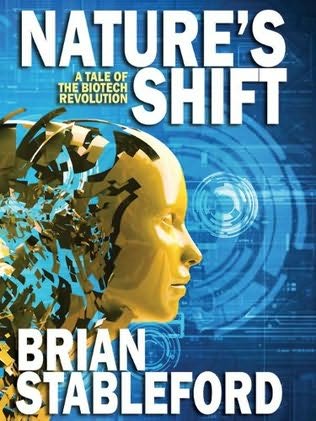Review by Sally Startup
By carrying our cultural past forward into an imagined future, we can
learn about our own present, as this book shows. It takes place after
the Crash, which led to the extinction of many species. Complete
ecological disaster was only avoided because of the efforts of
exceptional scientists like Roderick Usher. Now that Roderick the Great
is dead, his daugher Rosalind heads the Hive of Industry.
Rowland and Magdalen Usher could not help the fact that their family
name was the same as some characters in a story by Edgar Allan Poe. And
Peter Bell the Third cannot help the fact that his own name reflects a
poem by Shelley, as well as the truth of his genetic heritage. However,
such correspondences are hard to ignore completely, even when
consciously avoided.
Rowland has retreated from Rosalind — whose attitude to her role as
his mother is apparently so heartless — to continue his own research
in Venezuala. He has created a fabulous organic house for himself, in
the wilderness of the regenerated Orinoco delta. It is a very different
structure to the Crystal Palaces of Eden and the Great Pyramid, where
Rosalind works on her psychotropic flowers. The descriptions of both
locations are enchanting, and the hidden depths of Rowland's futuristic
house of Usher are as fascinating as they are disturbing.
The main characers in this story — Peter, the narrator, and
Rowland, Magdalen and Rosalind Usher — are all scientists, and
they all apprecaite beauty. But the Ushers have attempted to escape from
the Romantic imagination. Peter Bell the Third, however, enjoys reading
nineteenth century Romantic poetry. He comes to see the danger that the
Ushers have failed to appreciate.
At first, I didn't quite take to this book, but it slowly grew on me.
I read it twice, and only at the end of my second reading did I notice
there is a pun (or two) in the title.
|


